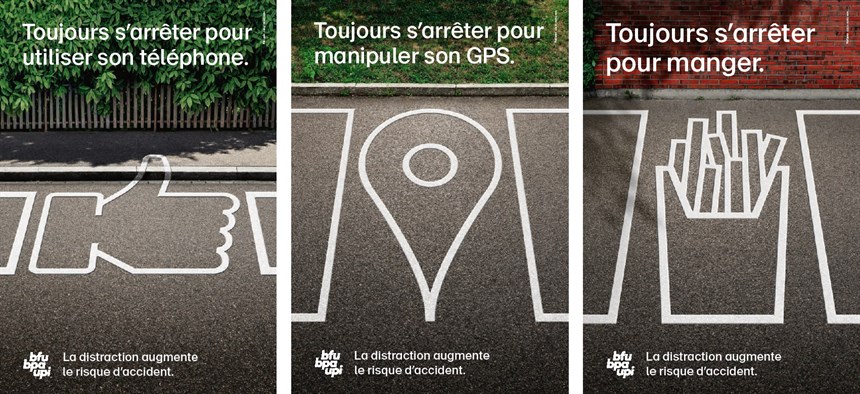
Screens claim lives on the road
Publié il y a 4 mois
18.12.2024
Partager

In Switzerland, emergency rooms continue to receive road casualties, with 3,891 serious injuries out of the 53,470 accidents recorded by the Federal Roads Office in 2023 (a figure that has remained relatively stable for about ten years). This number has been fluctuating between 50,000 and 55,000 annually since 2011. While deaths are down slightly, they still represent 228 lives lost. Behind these statistics lies a worrying reality: since the start of the decade, fatal accidents due to inattention and distractions exceed those related to alcohol. As a symbol of this trend, in 2022, 36 people lost their lives due to inattention, compared to 25 people who died from alcohol.
Should these deaths be added to the list of toxic effects of screens, which already disturb sleep, social relations, and sometimes education? Before we answer, let us take a closer look at what lies behind the Federal Roads Office’s category of “inattention and distraction.”
This category includes various behaviors or situations that may briefly distract the driver from the road. Among them are driving inexperience, ignorance of the road taken, or attention paid to a passenger, an animal, a phone, or an onboard device such as a radio or GPS. In 2022, of the 36 deaths attributed to this category, the majority were due to a “momentary lack of attention,” and only three of these were directly related to mobile phone use. A figure that has been between zero and three for over ten years. So screens are not the single most important cause of fatal distraction. However, accidents due to distractions can be added to the list of risks related to screens, such as addiction, sleep disorders, and early school leaving.
Rethinking our reflexes to save lives
How can we reduce these moments of inattention, which are often the cause of such tragedies? One solution would be to improve sleep quality because a well-rested brain is better able to maintain a state of alertness conducive to driving. This means limiting screens before bed, a habit whose beneficial effects on sleep are now well known.
Another interesting avenue comes from neuroscience research. A Swiss study from 2024, conducted by Professor Valerio Zerbi of the University of Geneva and published in Nature Neuroscience, reveals that our brain activates specific neural circuits to go from a focal concentration to a general state of alert. Both states can be strengthened by training, as high-performance athletes do. Maintaining a global alert level while driving, therefore, could save lives. As for focal concentration capabilities, it is best to reserve them at more appropriate times, such as following up on posts, reels, and other messaging applications, while comfortably seated on a sofa or a train.


![[Translate to Anglais:] IMAGE: ERIC DUBOST/ALAMY](https://www.invivomagazine.ch/fileadmin/_processed_/6/c/csm_Olga_Sidiropoulou_c_Eric_Dubost_slash__Alamy_2294874aef.jpg)
![[Translate to Anglais:] [Translate to Anglais:]](https://www.invivomagazine.ch/fileadmin/_processed_/a/3/csm_LN_INVIVO_Stress_02_140b28d03c.jpg)